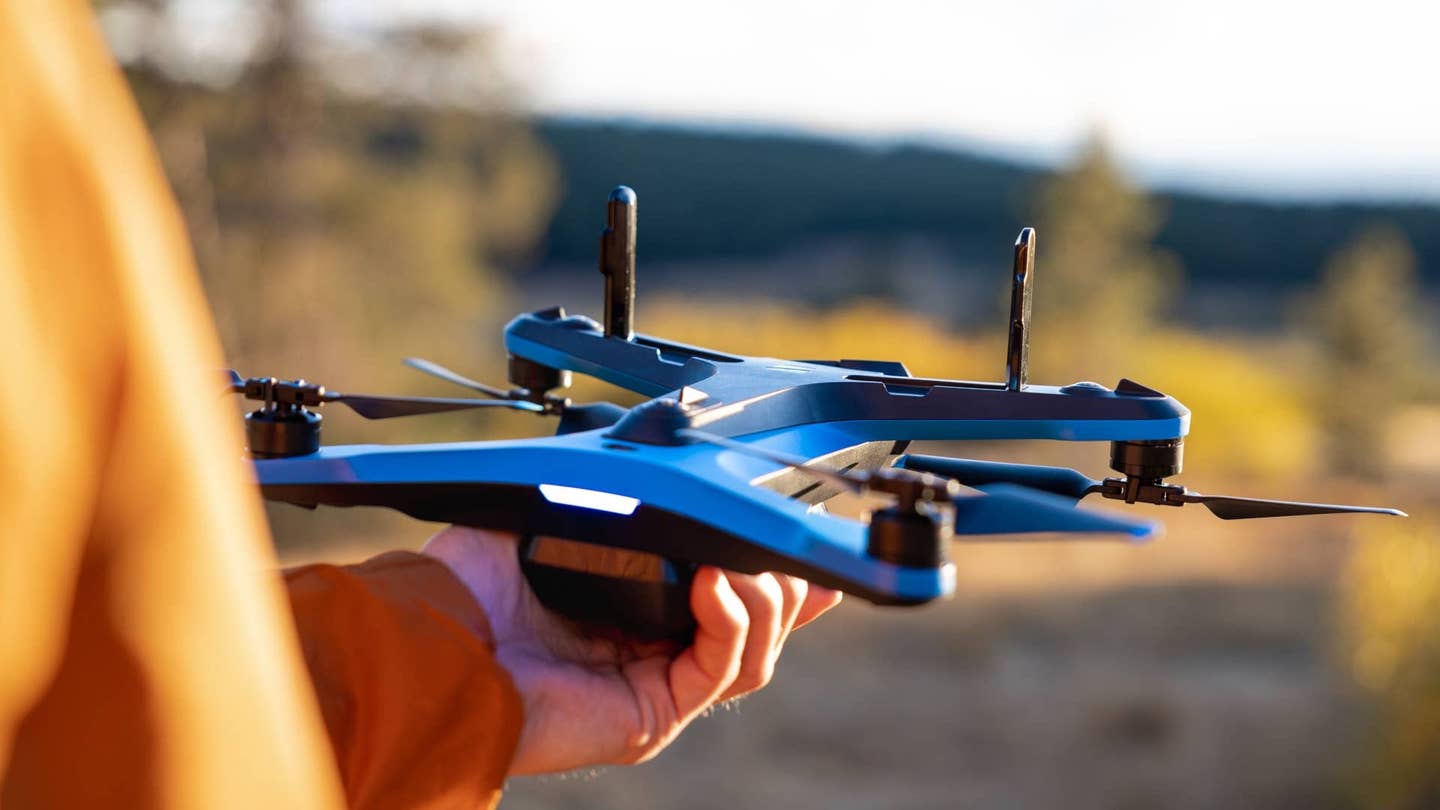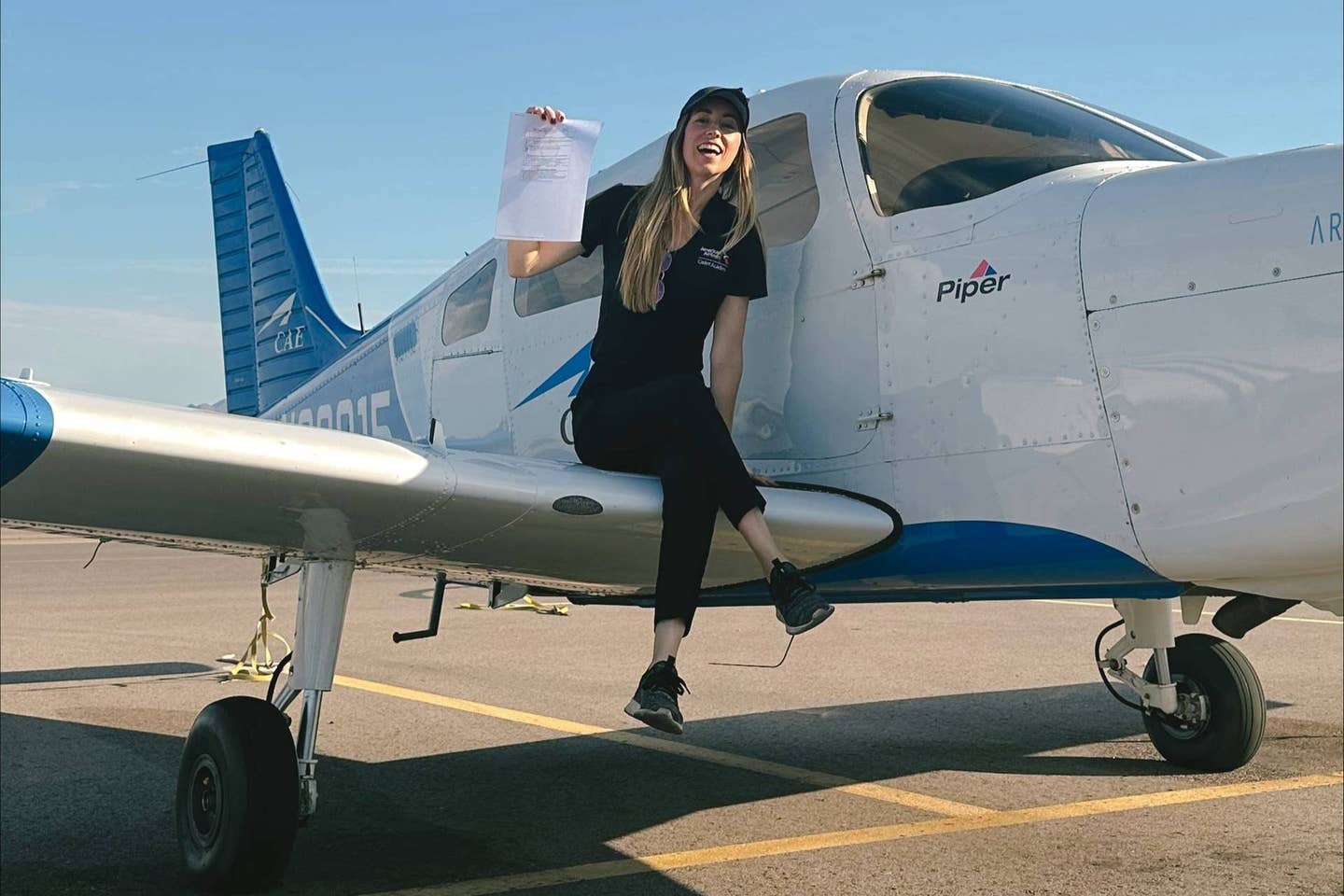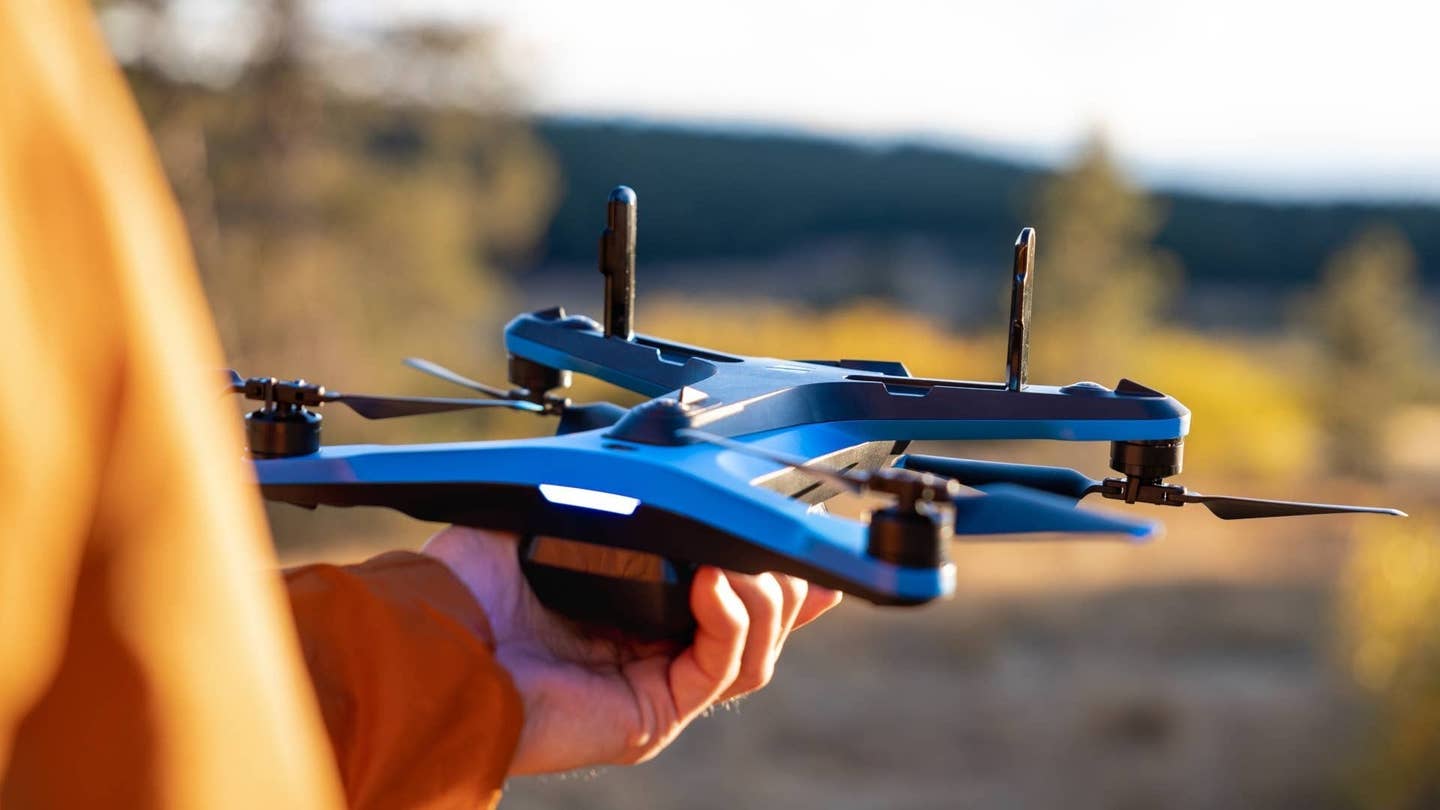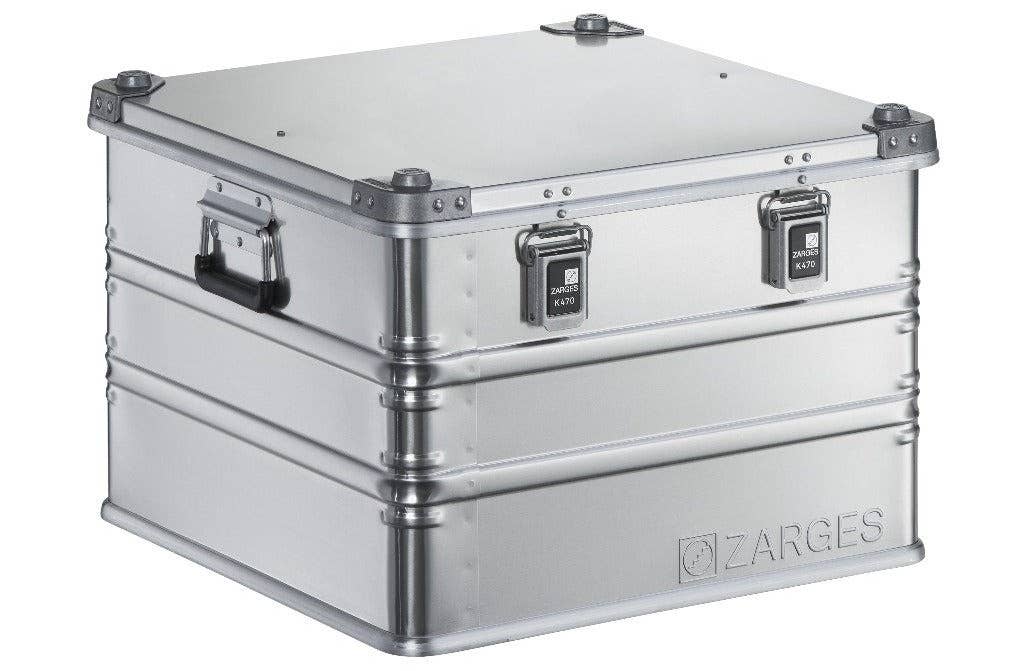Landing Your First Job in the Drone Industry
Learn skills, certifications, and strategies to earn your first high-paying UAV position.

Breaking into the drone industry can be challenging, but with the right education, skills, and strategies, you can do it. [Courtesy: Skydio]
According to the Bureau of Labor Statistics, the average full-time worker in the United States makes about $1,165 per week. That works out to a little over $60,000 before taxes. What if I told you the drone industry has many jobs that can earn you well beyond that? In some cases, you could even earn more than double that.
Drone jobs encompass a wide range of roles. Drone pilot jobs are what most of us think about, but those are not limited to just pilots. As a pilot, you might find yourself photographing luxury real estate, mapping a construction site, or monitoring the crop health of a large field. Beyond piloting are roles such as the engineers who design drones, the teams of marketing and salespeople that sell them, and analysts who process and interpret the data drones collect, just to name a few.
If you’d like to take a shot at earning six figures in the drone industry, we’ll set you on the right path. We’ll discuss the skills you need, how to find jobs, prepare for an interview, and other important tips that will help you succeed. Whether you are looking to pilot drones or do the work that supports the pilot, you are in the right place.
A quick side note: You can choose to work for an existing business or start your own. Working for someone else typically can lead to bigger annual earnings as well as benefits such as medical, dental, and a 401(k). Regardless of which path you choose, our advice will still help you along the way.
Education and Training
The education and training requirements vary significantly based on your role in the drone industry. Drone pilots may only need to get the Part 107 certification, while an engineer designing lidar cameras for drones would need extensive academic training and, most likely, years of industry experience. That being said, we’ll cover education and training in general. Once you focus on the drone job opportunities you want to pursue, make sure to research what specific education and training is needed for that role.
- Formal education: While many drone industry jobs do not require a degree, some are a no-go without it. Degrees in aviation, engineering, or computer science can give you a competitive edge, depending on what position you are applying for. Traditional college programs, like those offered at Embry‑Riddle Aeronautical University, cover topics like aerodynamics, robotics, and programming—skills directly applicable to drone technology.
- Certification and training: Outside of traditional degrees, many drone industry jobs will require certification and training. This is particularly true for commercial drone pilots. The FAA requires anyone making a profit from flying drones to have a Part 107 certification. One of the best methods for preparing for this exam is through online courses like those offered by Altitude University and the Pilot Institute. If you study better by reading books, check out Sporty’s Pilot Shop for its Part 107 study guide. Specialized skills like mapping and using thermal cameras will also require additional training.
- Hands-on experience: Practice makes perfect, especially when it comes to flying drones. Flight simulators, like the Zephyr Drone Simulator, can help you hone your skills in a risk-free environment. Building your own drone is another excellent way to deepen your understanding of the technology, especially if you are looking to design drones for a living. Additionally, joining a local drone club or community can provide networking opportunities and allow you to learn from more experienced pilots.
Additional Skills Worth Considering
Degrees and certifications are the foundation you’ll need to secure a drone pilot job or another position in the industry. It’s also a good idea to pick up some technical skills and soft skills along the way. Here are a few we recommend:
Technical skills:
- Flight planning and navigation: Mastering these skills ensures you can safely and efficiently operate a drone.
- Data acquisition and analysis: Many drone jobs involve collecting and interpreting data for industries like agriculture, construction, or environmental monitoring.
- Drone maintenance and repair: Understanding how to troubleshoot and fix drones can save time and money on the job.
- Software and hardware knowledge: Familiarity with tools like Pix4D, DroneDeploy, and ArcGIS Drone2Maps is invaluable.
Soft skills:
- Communication and interpersonal expertise: These are vital for collaborating with clients and colleagues.
- Problem solving and critical thinking: Drones often operate in challenging environments, requiring quick and effective solutions.
- Safety awareness and best practices: Ensuring safety is critical, both for the pilot and those around the drone.
- Business acumen and entrepreneurship: For freelancers, understanding how to market your services and manage projects is essential.
Job Searching Strategies
Now that you have the skills to jump into the drone industry, you’ll need to know where to find available drone-related jobs. Search engines are a great place to start, but here are a few more specific recommendations.
Networking
Building connections in the industry is one of the most effective ways to find job opportunities. As the saying goes, it’s not what you know but who you know. I’ve personally landed a lot of work from networking. Here are a few suggestions:
- Industry events: Attend drone conferences, trade shows, and local meetups to learn about the latest trends and meet potential employers or collaborators.
- Online platforms: Leverage LinkedIn and industry-specific forums to connect with professionals. Participate in discussions, share your work, and follow companies of interest.
- Informational interviews: Reaching out to experienced professionals for career advice can provide valuable insights and help you expand your network.
Job boards and portals
Some of the easiest places to find jobs in the drone industry are through job boards. A quick search for drone pilot jobs in your area will likely bring up hundreds of opportunities.
- General job boards: Websites like Indeed and LinkedIn often feature listings for drone-related roles. Set up job alerts to stay updated on new postings.
- Industry-specific platforms: Platforms like DroneDeploy and The Droning Company sometimes have job boards tailored to the drone industry. Explore these for more specialized opportunities.
When you are applying for drone jobs, you should expect clients and employers to ask for some proof that you are proficient in your field. For positions that require a degree, this is fairly easy. For people looking to find work as a pilot, you may be asked for a portfolio, flight logs, hours flown, and some examples of your work.
- Flight logs: Document your flying hours and types of missions.
- Data analysis projects: Highlight any work you’ve done analyzing drone data.
- Videos or photos: If applicable, showcase your best aerial footage or photography.
Consider building a professional website to house your portfolio. This can include your résumé, certifications, and contact information, making it easy for potential employers to find and assess your work.
Preparing for the Interview
Once you hone in on a specific opportunity, it’s time to get ready for the interview. Depending on your experience, interviews can be something to look forward to or dread. I personally enjoy the interview process, but I know many people who would be happy to never have another interview in their life. The key is to go in prepared. Here are a few ways to do that:
- Research the company and role: Before your interview, learn about the company’s mission, values, and recent projects. Understanding their goals will help you tailor your responses and demonstrate genuine interest.
- Prepare answers to questions like:
- “Tell me about yourself.”
- “Why are you interested in this role?”
- “What experience do you have with drone technology?”
- Prepare questions to ask the interviewer: Asking thoughtful questions shows your engagement and enthusiasm. For example:
- “What types of projects does the team typically work on?”
- “What opportunities are there for professional development within the company?”
Homestretch Considerations
With a solid interview completed and an offer in hand, it’s good to remember a couple of things. First, make sure you are getting a fair offer. Research salary ranges for the role you’re applying for. Websites like Glassdoor or PayScale can provide valuable insights. Be prepared to negotiate your salary and benefits based on your skills and experience. Second, make sure you know what you are getting into. Once you’ve secured the job, carefully review the terms of employment. During onboarding, take the time to familiarize yourself with the company's tools, protocols, and culture.
Breaking into the drone industry can be challenging, but with the right education, skills, and strategies, you can do it. Continuous learning and professional development are key to staying ahead in this rapidly evolving field. So, what are you waiting for? Take the first step toward your drone career today. Whether it’s enrolling in an online course, attending a networking event, or building your portfolio, every action brings you closer to your goal.
If you are interested in entering the drone industry, consider checking out these elite drone options for professionals.
FAQ
Where can I find drone job opportunities?
Job boards like LinkedIn, Indeed, and industry-specific platforms such as DroneDeploy and The Droning Company are great resources. Networking at drone conferences or local meetups can also open doors to new opportunities.
How can I gain hands-on experience as a beginner?
Start by practicing with flight simulators, building your own drones, or joining local drone clubs. These activities help you develop practical skills and connect with experienced professionals.
What education or certifications do I need to start a career in the drone industry?
Most drone-related roles require at least an FAA Part 107 certification for commercial operations. While formal degrees in aviation, engineering, or computer science are optional, they can provide a competitive edge for advanced roles.

Sign-up for newsletters & special offers!
Get the latest FLYING stories & special offers delivered directly to your inbox






